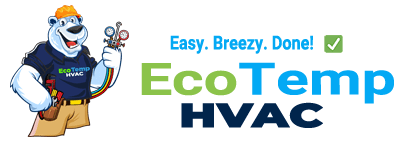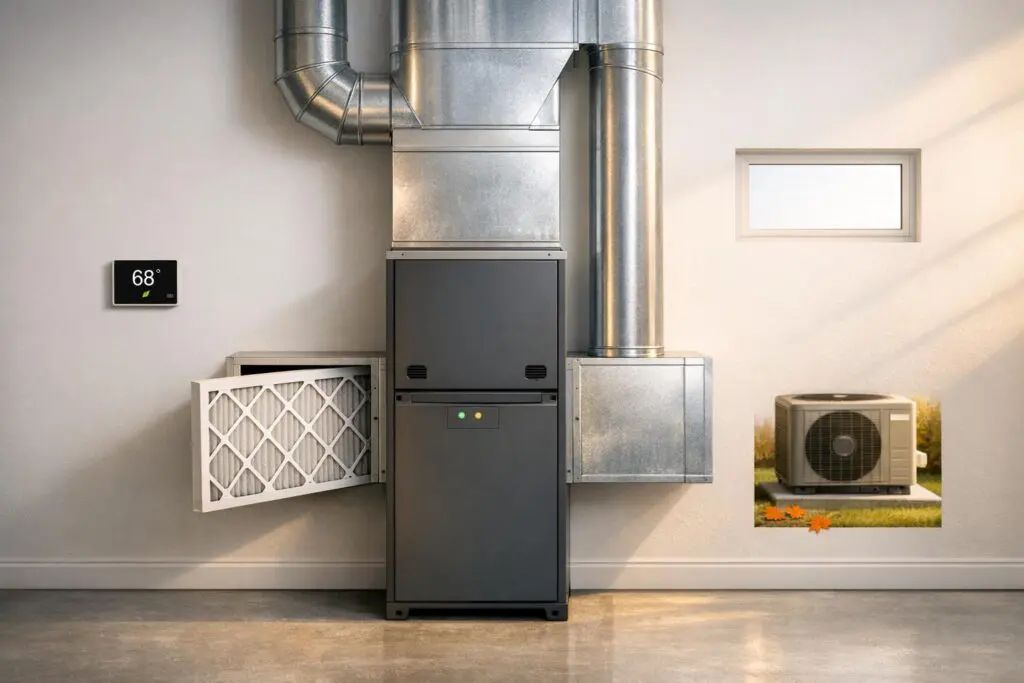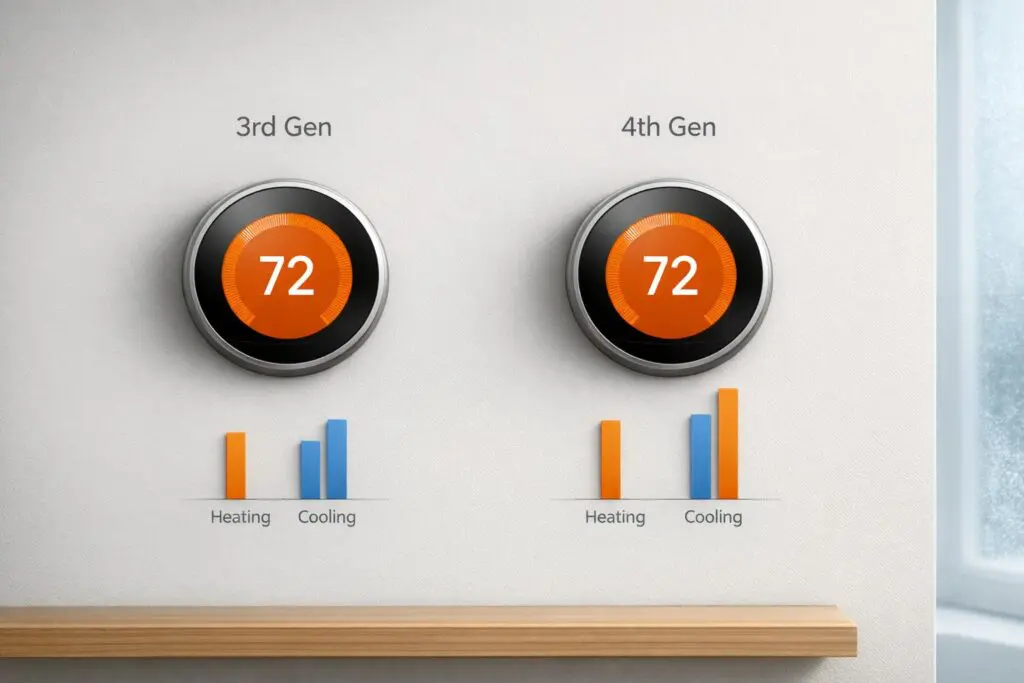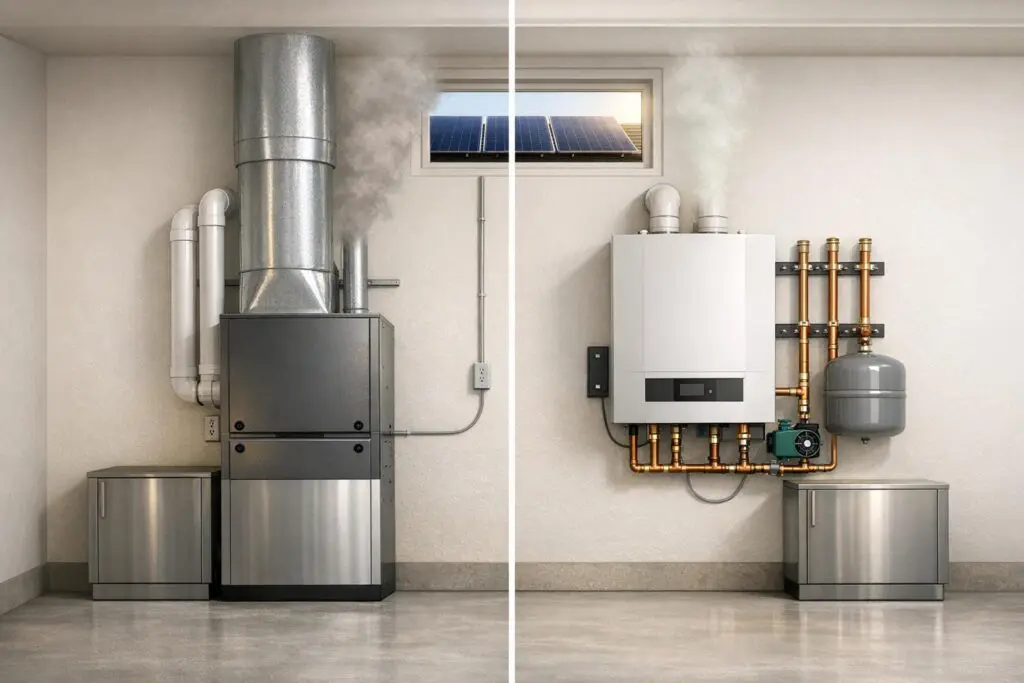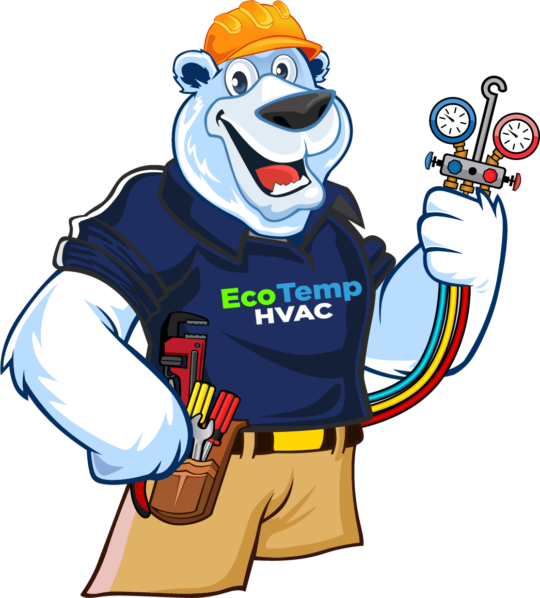Inflation Reduction Act HVAC Incentives (2026 Update)
This page was updated in January 2026 to reflect the current status of federal tax credits and Illinois-administered rebate programs.
Incentives can change based on federal law, IRS guidance, state program approvals, and funding availability. Always verify eligibility before purchase and installation.
Quick Answer: What changed for heat pumps and boilers in 2026?
- Federal residential tax credits for most HVAC upgrades ended after December 31, 2025.
That includes the popular heat pump credit (25C) and the geothermal credit (25D) for most homeowners in 2026.
IRS: Energy Efficient Home Improvement Credit (25C)
IRS: Residential Clean Energy Credit (25D)
IRS: OBBB/PL 119-21 FAQ (termination dates) - Heat pump and electrification rebates may still be available in Illinois because rebates are state-administered and funded separately from the ended federal tax credits.
Program timing and availability depends on Illinois implementation and remaining funding.
Illinois EPA: Home Energy Rebate Programs
U.S. Treasury explainer: DOE rebates vs tax credits - Boilers generally do not receive a federal tax credit in 2026.
Boiler upgrades may still qualify for utility rebates or other state/local programs.
What is the Inflation Reduction Act (IRA) and how does it relate to HVAC?
The Inflation Reduction Act (IRA) (2022) created major incentives for energy upgrades, including heat pumps and home electrification.
However, federal law changes and IRS guidance updated the timeline for several residential credits. For 2026, the biggest difference is that
many federal residential HVAC tax credits ended after December 31, 2025.
If you are trying to reduce out-of-pocket cost in 2026, you will typically be looking at:
- Illinois and local rebate programs (often income-based or program-specific)
- Utility rebates (ComEd, Ameren, municipal utilities, and others)
- Manufacturer incentives
Start here for Illinois-specific guidance:
HVAC Rebate Center and our Illinois Tax Credit and Incentive Guide.
IRA Rebates vs. Federal Tax Credits (what people keep confusing)
- Federal Tax Credits (IRS): Claimed on your tax return. Many residential IRA-era credits for HVAC ended after 2025.
Reference: IRS: About Form 5695
and IRS: Instructions for Form 5695. - IRA Rebates (State-administered): Funded by the federal government but administered by states. Availability depends on Illinois program rollout and funding.
Reference: Illinois EPA: Energy Rebates.
Important: Rebate programs can have income limits, eligible equipment requirements, contractor requirements, and funding caps.
If you want the clean version for homeowners, use our:
HVAC Rebate Center.
Federal HVAC Tax Credits (2026)
Section 25C: Energy Efficient Home Improvement Credit (Heat Pumps, Boilers, Furnaces, AC)
Status for 2026: Not available for property placed in service after December 31, 2025.
This was the main federal credit homeowners used for air-source heat pumps and certain high-efficiency HVAC equipment.
In 2026, this credit generally does not apply to new installations.
Official reference:
IRS: Energy Efficient Home Improvement Credit (25C) and IRS: OBBB/PL 119-21 FAQ.
Section 25D: Residential Clean Energy Credit (Geothermal Heat Pumps)
Status for 2026: Not available for property placed in service after December 31, 2025.
Geothermal heat pumps were commonly credited under 25D, but IRS guidance now reflects the 2025 law changes and the post-2025 cutoff.
Official reference:
IRS: Residential Clean Energy Credit (25D) and IRS: OBBB/PL 119-21 FAQ.
Builder and Commercial Incentives (limited relevance for most homeowners)
- 45L New Energy Efficient Home Credit: Termination for qualified homes acquired after June 30, 2026.
Reference: IRS: OBBB/PL 119-21 FAQ. - 179D Commercial Buildings Energy-Efficiency Deduction: Modified with a termination for property where construction begins after June 30, 2026.
Reference: IRS: OBBB/PL 119-21 FAQ.
Heat Pumps in 2026: What incentives may still exist?
In 2026, heat pumps may still be eligible for rebates (not federal tax credits) depending on Illinois program status and funding.
The most relevant IRA rebate programs are:
- HEAR (Home Electrification and Appliance Rebates, IRA Section 50122): Focused on efficient electrification upgrades (including heat pumps) for low-to-moderate income households.
Helpful overview:
ENERGY STAR: HEAR program overview. - HOMES (Home Efficiency Rebates, IRA Section 50121): Whole-home energy savings rebates tied to measured or modeled energy reductions.
Illinois status and updates:
Illinois EPA: Energy Rebates (HOMES + HEAR).
Want the fast path? Use our internal guide: HVAC Rebate Center
and book a heat pump estimate here: Heat Pump Services.
Boilers in 2026: What incentives may still exist?
Boiler upgrades generally do not qualify for a federal residential tax credit in 2026, since the main residential HVAC credit (25C) ended after 2025.
That does not mean there are zero savings opportunities. Boilers may still qualify for:
- Utility rebates (varies by utility and boiler efficiency level)
- Local municipal programs (varies by city)
- Manufacturer promotions
If your goal is to reduce long-term energy costs and improve comfort, a properly sized heat pump (or dual-fuel setup where appropriate) can sometimes outperform a boiler upgrade depending on the home, fuel costs, and distribution system.
Learn more about our boiler work here:
Boiler Services.
How to find rebates in your exact area
- Illinois IRA rebate status (official):
Illinois EPA: Energy Rebates - ENERGY STAR rebate finder:
ENERGY STAR: Rebate Finder
For Eco Temp customers, we also track common rebates and current programs here: HVAC Rebate Center
Frequently Asked Questions (2026)
Can I still get the $2,000 federal heat pump tax credit in 2026?
Generally, no. The federal Energy Efficient Home Improvement Credit (25C) is not allowed for property placed in service after December 31, 2025.
Official reference: IRS: 25C credit.
Does geothermal still get a 30% federal tax credit in 2026?
Generally, no. The IRS now reflects that the Residential Clean Energy Credit (25D) is not available for property placed in service after December 31, 2025.
Official reference: IRS: 25D credit.
Are IRA rebates still available in Illinois for heat pumps in 2026?
Possibly. IRA rebate programs are administered by Illinois and depend on program rollout and funding.
Check the official Illinois status here:
Illinois EPA: Energy Rebates.
Can I combine rebates and tax credits?
In 2026, most homeowners will be combining state/utility rebates and manufacturer incentives because many federal residential HVAC tax credits ended after 2025.
For background on coordination rules, reference:
U.S. Treasury explainer.
Where can I verify the official federal cutoff dates?
Use the IRS pages below:
- IRS: 25C Energy Efficient Home Improvement Credit
- IRS: 25D Residential Clean Energy Credit
- IRS: OBBB/PL 119-21 FAQ (termination dates)
- IRS: About Form 5695
- IRS: Form 5695 instructions
Related Eco Temp resources
- HVAC Rebate Center
- Illinois Tax Credit and Incentive Guide + Calculator
- Heat Pump Installation, Repair, and Maintenance
- Boiler Installation, Repair, and Maintenance
- Heating Services
Official resources (government and program references)
- IRS: Energy Efficient Home Improvement Credit (25C)
- IRS: Residential Clean Energy Credit (25D)
- IRS: FAQ on changes under Public Law 119-21 (OBBB)
- IRS: About Form 5695 (Residential Energy Credits)
- Illinois EPA: Energy Rebates (HOMES + HEAR)
- U.S. Treasury: DOE rebates vs tax credits explainer
- ENERGY STAR: Rebate Finder
Disclosure: This page provides general information, not tax advice. Eligibility depends on IRS rules, state program requirements, and your specific project details.
For tax questions, consult a qualified tax professional.
Heat Pump and Boiler Incentives FAQ (2026)
These answers reflect current federal guidance and Illinois program status for 2026. Incentives depend on installation date, funding availability, and program rules.
Generally, no. Federal residential HVAC tax credits for heat pumps ended for systems placed in service after December 31, 2025. Most homeowners installing a heat pump in 2026 will not qualify for a federal income tax credit.
In most cases, no. Residential geothermal systems placed in service after December 31, 2025 generally do not qualify for a federal tax credit. Homeowners should verify timing and eligibility with a tax professional.
Possibly, but only in limited cases. Some federal rules allow eligibility when a binding written contract was signed and financial obligations were met before the cutoff date. This is highly specific and should be reviewed with a tax professional before relying on it.
Possibly. Illinois administers IRA-funded rebate programs separately from federal tax credits. Availability depends on state rollout timing, income qualifications, and remaining funding. Rebates may pause or end once funds are exhausted.
Federal residential tax credits for boilers are generally not available in 2026. However, high-efficiency boiler installations may still qualify for utility rebates, manufacturer incentives, or local programs depending on location.
In many cases, yes. Utility rebates can often be combined with state-administered IRA rebates, but rules vary by program. Some rebates cannot be stacked, and income-based programs may have additional restrictions.
Some rebate programs allow rental properties, while others are limited to owner-occupied homes. Eligibility depends on the specific rebate program, building type, and income requirements tied to the occupants.
Certain electrification upgrades may qualify for rebates when installed as part of a qualifying heat pump or energy efficiency project. Eligibility depends on program rules and whether the upgrade is required to support new equipment.
Once allocated funds are exhausted, rebates may pause or end with little notice. Availability is not guaranteed, which is why timing and pre-approval are important before starting a project.
The fastest way is to review current Illinois programs and utility rebates, then confirm eligibility during a professional HVAC estimate. Incentives vary by location, income, and system type.
Heat Pump vs Boiler (2026 Comparison)
In 2026, the decision comes down to comfort, home layout, energy costs, and which incentives are actually available right now. This comparison is written for Illinois homeowners and reflects current federal guidance and state/utility realities.
| Category | Heat Pump | Boiler |
|---|---|---|
| Federal tax credits (2026) | Not available | Not available |
| Illinois IRA rebates |
Possibly available
Income-based and funding dependent
|
Rare / limited
Typically program-specific
|
| Utility rebates | Often available | Sometimes available |
| Efficiency |
Very high
Can deliver 2 to 4+ units of heat per unit of electricity
|
Moderate to high
High-efficiency models commonly 85 to 95% AFUE
|
| Heating and cooling | Heating + cooling | Heating only |
| Cold weather performance |
Strong (with proper equipment)
Best results with cold-climate models and correct sizing
|
Excellent
Great for consistent hydronic heat in winter
|
| Comfort feel |
Varies by home
Even comfort when designed well. Airflow matters.
|
Very comfortable
Radiant-style warmth with steady temperatures
|
| Operating cost drivers |
Electric rate dependent
Can be very cost-effective with efficient equipment
|
Gas price dependent
Often predictable costs, varies by fuel pricing
|
| Typical install complexity |
Moderate to high
May involve ductwork, line sets, electrical work
|
Moderate
Best when replacing an existing hydronic boiler
|
| Electrical upgrades |
Sometimes needed
Panel capacity and wiring can be a factor
|
Not typically |
| Best fit |
Homeowners who want efficiency + cooling
Great for whole-home comfort when designed correctly
|
Homes with hydronic baseboards or radiant heat
Strong option if you want to keep the existing system type
|
| Common “best of both” option |
Dual-fuel setups may be a great solution
In some homes, a heat pump handles most of the year while another heat source supports extreme cold.
An on-site assessment determines what makes sense.
|
|
Incentives are not guaranteed and can change based on program funding, eligibility rules, and installation dates. For a real answer, we recommend a load calculation plus an incentive check at the time of your estimate.
